-
 Bitcoin
Bitcoin $90,768.7638
3.12% -
 Ethereum
Ethereum $1,694.6810
4.36% -
 Tether USDt
Tether USDt $1.0007
0.04% -
 XRP
XRP $2.1477
1.67% -
 BNB
BNB $610.2681
1.01% -
 Solana
Solana $145.1164
4.77% -
 USDC
USDC $0.9999
-0.01% -
 Dogecoin
Dogecoin $0.1711
6.33% -
 TRON
TRON $0.2465
1.13% -
 Cardano
Cardano $0.6542
3.11% -
 Chainlink
Chainlink $13.8160
3.42% -
 Avalanche
Avalanche $21.7042
5.12% -
 UNUS SED LEO
UNUS SED LEO $8.9784
-1.69% -
 Stellar
Stellar $0.2575
-0.17% -
 Sui
Sui $2.3973
6.89% -
 Shiba Inu
Shiba Inu $0.0...01299
3.42% -
 Hedera
Hedera $0.1763
3.37% -
 Toncoin
Toncoin $2.9676
-0.41% -
 Bitcoin Cash
Bitcoin Cash $359.7154
4.17% -
 Litecoin
Litecoin $82.4828
3.44% -
 Hyperliquid
Hyperliquid $18.4002
2.22% -
 Polkadot
Polkadot $3.8756
-0.35% -
 Dai
Dai $1.0000
0.01% -
 Bitget Token
Bitget Token $4.4973
0.74% -
 Ethena USDe
Ethena USDe $0.9997
0.03% -
 Pi
Pi $0.6374
0.18% -
 Monero
Monero $219.2679
2.44% -
 Pepe
Pepe $0.0...08404
6.38% -
 Uniswap
Uniswap $5.5798
2.95% -
 Aptos
Aptos $5.0875
0.19%
How to buy Bitcoin or Ethereum ETF?
Selecting the appropriate Bitcoin or Ethereum ETF requires careful consideration of investment goals, risk tolerance, and the nuances of spot, futures, and physically backed ETFs.
Feb 20, 2025 at 12:18 pm
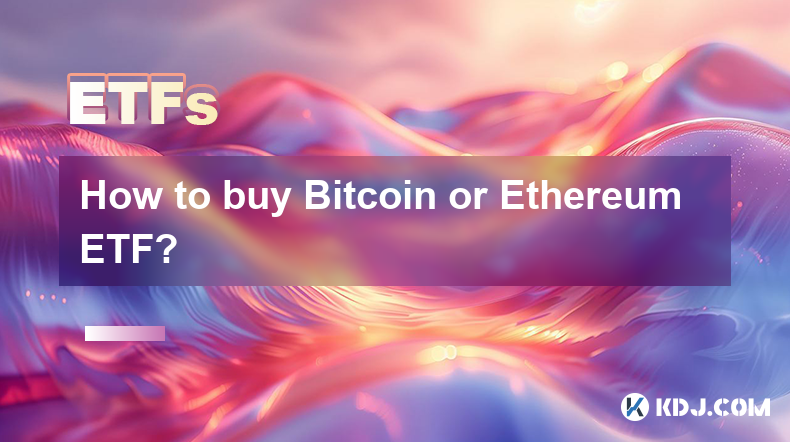
How to Buy Bitcoin or Ethereum ETF: A Comprehensive Guide for Beginners and Experts Alike
Key Points:
- Understanding ETFs: ETFs, or Exchange-Traded Funds, are investment vehicles that track a basket of underlying assets, such as stocks, bonds, or commodities.
- Advantages of ETF Investing: ETFs offer diversification, low management fees, and ease of trading.
- Types of Bitcoin and Ethereum ETFs: There are spot ETFs, futures ETFs, and physically backed ETFs.
- Choosing the Right ETF: Consider factors such as investment strategy, risk tolerance, and fees.
- Investing in Bitcoin and Ethereum ETFs: Step-by-step instructions on buying ETFs through a brokerage.
- Taxes on ETF Investments: Be aware of potential tax implications based on trading frequency and holding period.
- FAQs on Bitcoin and Ethereum ETFs
Understanding Exchange-Traded Funds (ETFs)
ETFs are investment funds that provide exposure to a specific asset class or market segment. They combine the advantages of stocks (traded throughout the day) and mutual funds (diversified portfolio management). Unlike mutual funds, ETFs can be bought and sold on exchanges like stocks.
ETFs have gained popularity due to:
Diversification: ETFs typically hold a basket of assets, reducing investment risk compared to individual stock selection.
Low Management Fees: ETFs generally have lower management fees than actively managed mutual funds.
Ease of Trading: ETFs can be bought and sold like stocks, providing greater flexibility and liquidity.
Types of Bitcoin and Ethereum ETFs
Spot ETFs: These ETFs track the spot price of Bitcoin or Ethereum, allowing investors direct exposure to the underlying cryptocurrencies. Spot ETFs involve holding actual bitcoins or ethers.
Futures ETFs: Futures ETFs track the futures contracts associated with Bitcoin or Ethereum. Investors gain exposure to the cryptocurrency's future price without physically holding it.
Physically Backed ETFs: These ETFs hold actual Bitcoin or Ethereum in custody. They are considered the most direct way of investing in cryptocurrencies within an ETF structure.
Choosing the Right ETF
Investment Strategy: Consider your investment goals and risk tolerance. Spot ETFs provide more direct exposure, while futures ETFs may offer more flexibility.
Risk Tolerance: Assess your comfort level with potential price fluctuations and choose an ETF that aligns with your risk appetite.
Fees: Compare the expense ratios and management fees of different ETFs. Lower fees can translate into higher returns over time.
Investing in Bitcoin and Ethereum ETFs
Step 1: Open a Brokerage Account: Choose a reputable brokerage that supports ETF trading and offers crypto-related investments.
Step 2: Fund Your Account: Deposit funds into your brokerage account to cover the purchase price of the ETF.
Step 3: Place an Order: Use the brokerage platform to place a buy order for the desired Bitcoin or Ethereum ETF (e.g., BITO or ETH).
Step 4: Set Price and Quantity: Specify the purchase price and the number of ETF shares you wish to buy.
Step 5: Monitor Performance: Track the ETF's performance in your brokerage account and make adjustments as needed based on your investment strategy.
Taxes on ETF Investments
- Short-term Capital Gains: Profits from ETF sales held for less than one year are subject to short-term capital gains tax rates (based on your ordinary income tax bracket).
- Long-term Capital Gains: Profits from ETF sales held for one year or more are subject to long-term capital gains tax rates (typically lower than short-term rates).
- Wash Sale Rule: Be aware of the wash sale rule, which may delay capital gains or losses if you sell an ETF within 30 days of purchasing it.
FAQs on Bitcoin and Ethereum ETFs
Q: What are the advantages of investing in Bitcoin or Ethereum ETFs compared to buying cryptocurrencies directly?
- ETF investments provide diversification, lower fees, and ease of trading through traditional brokerage platforms.
Q: Are Bitcoin and Ethereum ETFs suitable for all investors?
- The suitability depends on individual investment goals and risk tolerance. Conservative investors may prefer futures ETFs or ETFs with exposure to multiple cryptocurrencies.
Q: What is the difference between spot, futures, and physically backed ETFs?
- Spot ETFs track the current price of Bitcoin or Ethereum, futures ETFs track futures contracts, and physically backed ETFs hold actual cryptocurrencies in custody.
Q: How do I choose the right Bitcoin or Ethereum ETF for my investment strategy?
- Consider your long-term goals, risk appetite, and desired level of exposure to cryptocurrencies when making a choice.
Q: What are the tax implications of investing in Bitcoin or Ethereum ETFs?
- Short-term and long-term capital gains tax rates apply, depending on the holding period of the ETF investment. The wash sale rule may also impact taxation.
Disclaimer:info@kdj.com
The information provided is not trading advice. kdj.com does not assume any responsibility for any investments made based on the information provided in this article. Cryptocurrencies are highly volatile and it is highly recommended that you invest with caution after thorough research!
If you believe that the content used on this website infringes your copyright, please contact us immediately (info@kdj.com) and we will delete it promptly.
- Dogecoin (DOGE) Consolidates Within a Symmetrical Triangle, Breakout or Decline on the Cards
- 2025-04-23 00:00:53
- BitGo Integrates sBTC, Expanding Institutional Participation in Decentralized Finance
- 2025-04-23 00:00:53
- Fartcoin (FARTCOIN) Price Prediction 2025-2030: Will FARTCOIN Price Hit $5 Soon?
- 2025-04-22 23:55:12
- Integral Ad Science Holding Corp (NASDAQ: IAS) closed at $6.38, down -2.15%
- 2025-04-22 23:55:12
- Dogecoin Faces Pressure as Elon Musk's Federal Role Nears an End
- 2025-04-22 23:50:12
- MANA Token Price Breaks Long-Term Resistance, Surging 18%
- 2025-04-22 23:50:12
Related knowledge
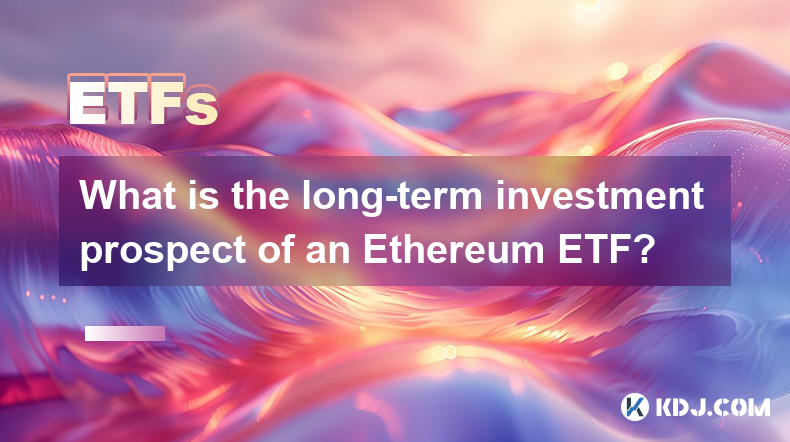
What is the long-term investment prospect of an Ethereum ETF?
Mar 18,2025 at 03:01pm
Key Points:Uncertainty surrounds the long-term prospects of an Ethereum ETF due to regulatory hurdles and market volatility.Approval hinges on regulatory clarity regarding cryptocurrencies, especially concerning investor protection and market manipulation.Successful ETF launches could boost Ethereum's price and adoption, but failure could negatively imp...
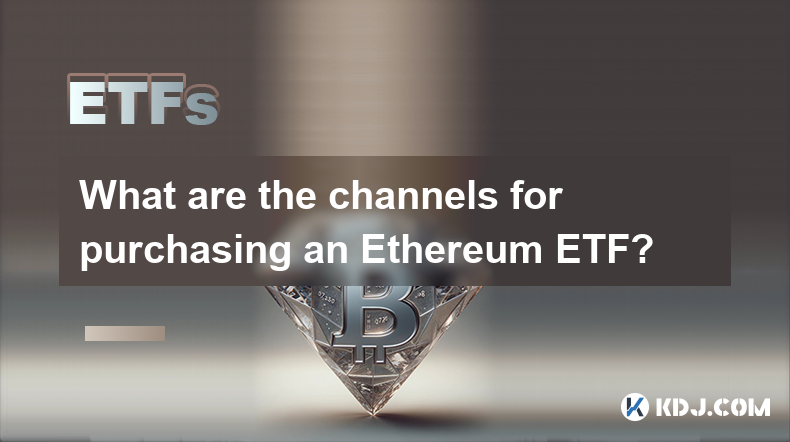
What are the channels for purchasing an Ethereum ETF?
Mar 18,2025 at 01:49am
Key Points:Currently, there are no Ethereum ETFs available for direct purchase by the general public in most major markets.Access to Ethereum exposure through ETFs is limited, mainly through futures-based ETFs.Purchasing Ethereum directly or through other investment vehicles remains a viable alternative.Regulatory hurdles and market complexities signifi...
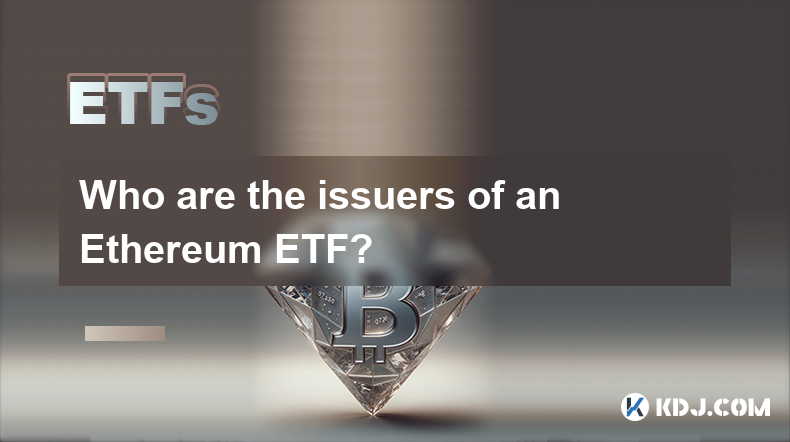
Who are the issuers of an Ethereum ETF?
Mar 19,2025 at 08:07pm
Key Points:There are no currently approved Ethereum ETFs in the US, meaning no single issuer can be definitively named. However, several firms have filed applications.The issuers of potential Ethereum ETFs will be large, established financial institutions, typically asset management companies.The specific requirements for ETF issuers are stringent and o...
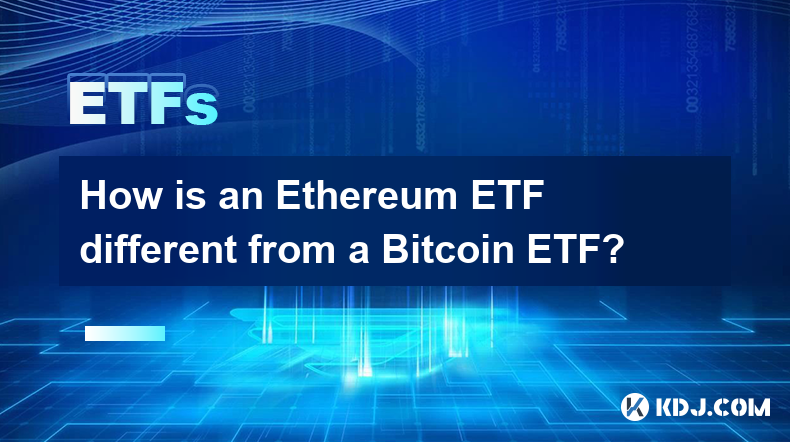
How is an Ethereum ETF different from a Bitcoin ETF?
Mar 17,2025 at 10:55am
Key Points:Underlying Asset: The core difference lies in the underlying asset: an Ethereum ETF tracks the price of Ether (ETH), while a Bitcoin ETF tracks the price of Bitcoin (BTC).Technology and Use Cases: Ethereum's blockchain supports smart contracts and decentralized applications (dApps), creating a distinct technological and investment narrative c...
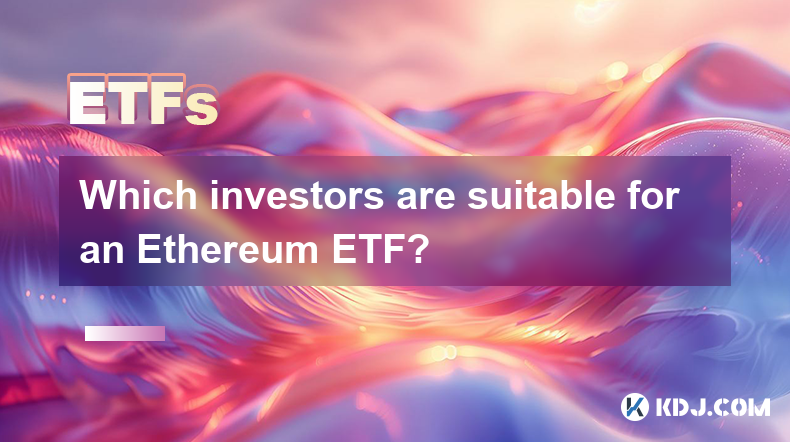
Which investors are suitable for an Ethereum ETF?
Mar 16,2025 at 05:50pm
Key Points:Risk Tolerance: Ethereum ETF investment requires a high risk tolerance due to the volatility of the cryptocurrency market.Investment Goals: Investors seeking long-term growth potential and exposure to the Ethereum ecosystem are suitable candidates.Investment Horizon: A longer-term investment horizon is crucial to weather market fluctuations.U...
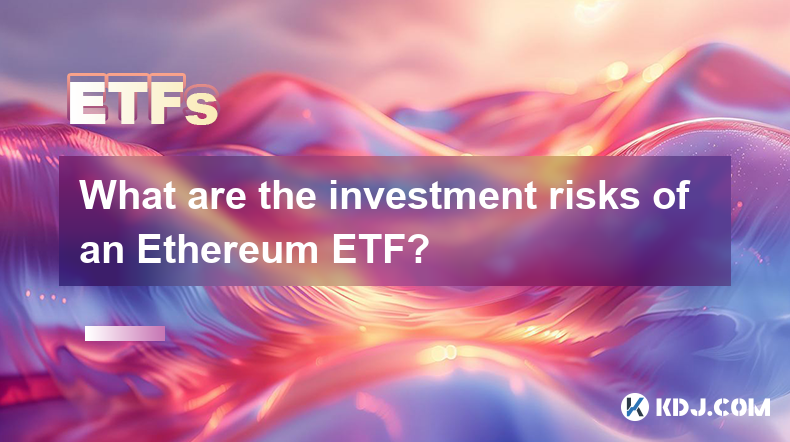
What are the investment risks of an Ethereum ETF?
Mar 18,2025 at 02:12am
Key Points:Price Volatility: Ethereum's price is highly volatile, impacting ETF share prices.Regulatory Uncertainty: Changes in regulatory landscapes can significantly affect ETF trading and performance.Market Manipulation: The potential for market manipulation, particularly in smaller ETFs, exists.Underlying Asset Risk: Risks associated with the Ethere...

What is the long-term investment prospect of an Ethereum ETF?
Mar 18,2025 at 03:01pm
Key Points:Uncertainty surrounds the long-term prospects of an Ethereum ETF due to regulatory hurdles and market volatility.Approval hinges on regulatory clarity regarding cryptocurrencies, especially concerning investor protection and market manipulation.Successful ETF launches could boost Ethereum's price and adoption, but failure could negatively imp...

What are the channels for purchasing an Ethereum ETF?
Mar 18,2025 at 01:49am
Key Points:Currently, there are no Ethereum ETFs available for direct purchase by the general public in most major markets.Access to Ethereum exposure through ETFs is limited, mainly through futures-based ETFs.Purchasing Ethereum directly or through other investment vehicles remains a viable alternative.Regulatory hurdles and market complexities signifi...

Who are the issuers of an Ethereum ETF?
Mar 19,2025 at 08:07pm
Key Points:There are no currently approved Ethereum ETFs in the US, meaning no single issuer can be definitively named. However, several firms have filed applications.The issuers of potential Ethereum ETFs will be large, established financial institutions, typically asset management companies.The specific requirements for ETF issuers are stringent and o...

How is an Ethereum ETF different from a Bitcoin ETF?
Mar 17,2025 at 10:55am
Key Points:Underlying Asset: The core difference lies in the underlying asset: an Ethereum ETF tracks the price of Ether (ETH), while a Bitcoin ETF tracks the price of Bitcoin (BTC).Technology and Use Cases: Ethereum's blockchain supports smart contracts and decentralized applications (dApps), creating a distinct technological and investment narrative c...

Which investors are suitable for an Ethereum ETF?
Mar 16,2025 at 05:50pm
Key Points:Risk Tolerance: Ethereum ETF investment requires a high risk tolerance due to the volatility of the cryptocurrency market.Investment Goals: Investors seeking long-term growth potential and exposure to the Ethereum ecosystem are suitable candidates.Investment Horizon: A longer-term investment horizon is crucial to weather market fluctuations.U...

What are the investment risks of an Ethereum ETF?
Mar 18,2025 at 02:12am
Key Points:Price Volatility: Ethereum's price is highly volatile, impacting ETF share prices.Regulatory Uncertainty: Changes in regulatory landscapes can significantly affect ETF trading and performance.Market Manipulation: The potential for market manipulation, particularly in smaller ETFs, exists.Underlying Asset Risk: Risks associated with the Ethere...
See all articles























































































